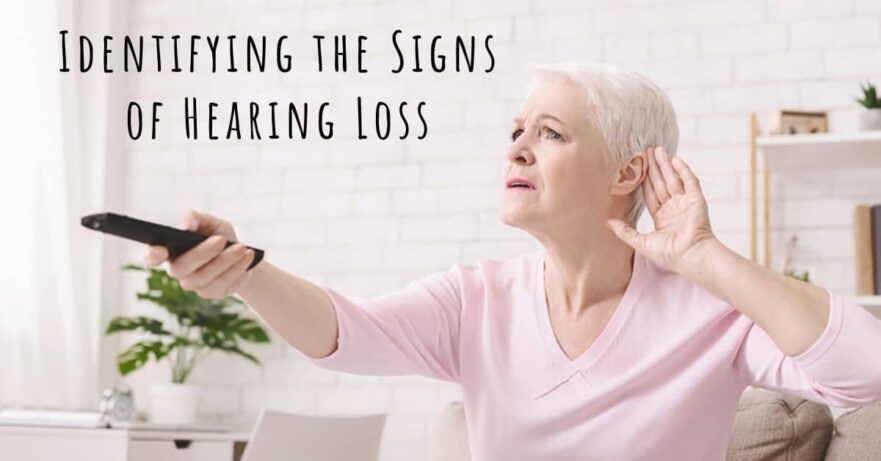Hearing loss, also referred to as hearing impairment, is a condition that results in partial or total inability to perceive sounds. Hearing loss may occur in one ear or sometimes may occur on both. In children, hearing impairment may pose a significant challenge when they begin to learn spoken language, and in adults, it can cause difficulties in social interactions and workplaces. In some people, particularly the old, hearing impairment can contribute to loneliness. Hearing loss may be permanent or temporary.
Hearing loss may be caused by various factors, among them genetics factors, exposure to noise, aging, and some infections. Hearing loss can be categorized as either mild, moderate, and severe.
Prevalence of Hearing Loss
Hearing loss is the third common health problem in the world after arthritis and heart disease affecting people of all ages. As of 2013, approximately 1.1 billion people around the globe experienced hearing loss at some point in that year. Hearing impairment is believed to cause disability in 5 percent of the world’s population and moderate to severe disability in 124 million people. Among those individuals with moderate to severe hearing loss, 108 million of them reside in low and middle-income countries.
According to reports from the Health Association of America, about 20 percent of Americans report some degree of hearing loss in their life. Age is one of the most potent factors that influence the prevalence of hearing impairment. Individuals between the age of 20-69 are usually at higher risk of suffering from hearing loss. Adult males aged between 20-69 are twice likely to experience hearing loss compared to the females of the same age. However, as women age, they experience difficulties in listening to lower frequencies than men do.
In children, the prevalence of hearing loss is pretty lower. About 2-3 children out of 1000 in the United States are born with hearing loss either in one or both ears. Also, about fifteen percent of school-age children suffer some sort of hearing impairment. More than 90 percent of children with hearing loss are born to hearing parents.
Signs of Hearing Loss
- People with hearing loss are likely to experience the following signs and symptoms:
- Struggling to understand sound and speech at a lower frequency.
- Frequently requesting others to talk slowly, clearly, and loudly.
- Withdrawal from conversations.
- Tend to listen to music or television at a higher volume to clearly understand.
- Hearing sounds as muffled.
- Trouble in hearing constant speech.
Consequences of Untreated Hearing Loss
Untreated hearing loss can result in serious consequences. Besides health problems, untreated hearing loss can as well affect various life aspects, including cognitive abilities, social withdraw, financial stagnation, and poor mental health. A national study that involved 4,000 adults with hearing loss conducted by the National Council of Aging found significantly high rates of psychological disorders among them anxiety and depression attributed to untreated hearing loss.
Also, a similar study by Johns Hopkins found that cognitive growth declined by up to 41 percent in seniors with hearing loss. The study also found a link between untreated hearing loss and dementia, among other immediate effects. Researchers and hearing care providers have now understood the connection between cognition and hearing acuity.
Fortunately, the good news is that hearing loss is treatable. According to Better Health Institute, about 96 percent of Americans with cases of hearing loss can be treated with hearing aids, and individuals who seek treatment early have shown recognizable benefits. Hearing aids works by altering the incoming sound and, as a result, produce a sound that your brain can understand. Other benefits impacted by hearing aids include; reduces mental fatigue, enhances communication, decreases the feeling of social isolation, improves concentration skills, and boosts memory, focus, as well as attention.
Effective Ways to Treat Hearing Loss
Hearing loss being a condition that cannot be cured, the good news is that there are available treatment options to manage this condition. However, treatment options vary depending on the cause and severity of the condition. The following are the common treatment option available:
- Hearing aids – if your hearing impairment occurs as a result of the damaged inner ear, using hearing aids can help a lot. Besides, they are the most popular devices used for treating hearing loss.
- Surgical procedures – it is usually conducted when medical and hearing aid treatment fails. Also, some types of hearing loss, such as abnormalities of the eardrum, require surgery to be treated.
- Cochlear implant – this may be recommended in the case prior treatments have failed.
- Drug and OTC medications – some medications such as antibiotics may be prescribed, which works to eradicate infections in the ear.

